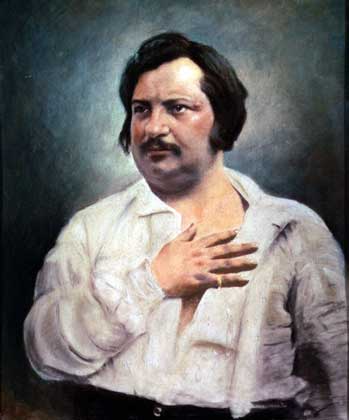
Colonel Chabert
by Honore de Balzac
(20 May 1799 – 18 August 1850)

 |
Colonel Chabertby Honore de Balzac
|
 |
Balzac: "Chance is the greatest novelist in the world: in order to be productive, one has merely to study it. French society was to be the historian, I had merely to be its secretary. By setting up an inventory of vices and virtues, by gathering the principle facts of the passions, by portraying characters, by choosing the major events of Society, by composition types through an amalgam of the traits of several homogenous characters, perhaps I could manage to write the history forgotten by historians, that of manners. With much patience I would actualize for ninteenth century France that book which, to the great regret of us all, Rome, Athens, Persian, and India unfortunately failed to leave us about their civilizations. By keeping to rigourous reproduction, a writer could become aa more or less faithful, more or less felicitous, patient or couragous painter of human types, the narrator of the dramas of intimate life, the archaelogist of social property, the namer of professions, and the registrar of good and evil, but in order to deserve the praise to which every artist aspires, ought I not probe the reasons or the reason for these social manifestations, unveil the hidden meaning in this immense collection of figures, passions, and events? And having sought--and I do not say found, this reason or reasons, this social motor agent, should one not meditate on natural principles, and see how Societies move further from or closer to the eternal rule, to the true and the beautiful?"
Duranty: "Realism demands of artists only the study of their period;
That in this study of their period it asks them not to distort anything, but to keep everything in its exact proportions;
That the best way not to err in this study is to think always of the idea of representing the social side of man, which is the most visible, the most comprehensible and the most varied, and to think also of the idea of reproducing the things affecting the lives of the greatest number, which happen often in the realm of instincts, desires, and passions;
That Realism thereby attributes to the artist a philosophical, practical, useful aim, and not that of amusement, and consequently raises him up.
That, in demanding of the artist useful truth, it demands of him particularly the intelligent feeling and observation which sees a lesson, an emotion in a spectacle at any level, low or high, according to convention, and which always extracts this lesson, this emotion from the spectacle, knowing how to represent it completely, and to embed it in its social cadre."
Balzac: "You, who hold this book in your white hands, as you sit comfortably
ensconsed in a soft armchair, you will show the same insensitivity as you
say to yourself: 'Perhaps this will amuse me.' After you have read of the
secret sorrows of old Goriot, you will have a fine appetite at dinner, and
you will blame your callousness on the author, accusing him of
exaggeration and of poetic licence. But mark this well: this drama is
neither a fiction nor a romance. All is true A so true that each one of you
can recognise its elements in his or her own home, maybe even in his or
her own heart."
George Eliot: "So I am content to tell my simple story, without trying to make things seem better than they were; dreading nothing, indeed, but falsity, which, in spite of one's best efforts, there is reason to dread. Falsehood is so easy, truth so difficult. The pencil is conscious of a delightful facility in drawing a griffin - the longer the claws, and the larger the wings, the better; but that marvellous facility which we mistook for genius is apt to forsake us when we want to draw a real unexaggerated lion. Examine your words well, and you will find that even when you have no motive to be false, it is a very hard thing to say the exact truth, even about your own immediate feelings - much harder than to say something fine about them which is not the exact truth"
The full-length film of Colonel Chabert, dubbed in Russian!
The charge in the Battle of Eylau (excerpt from the film)
Beethoven, Ghost Trio, second movement (the battlefield music in the film)